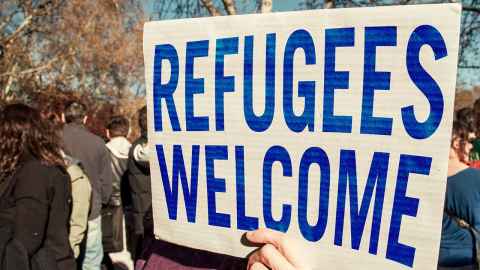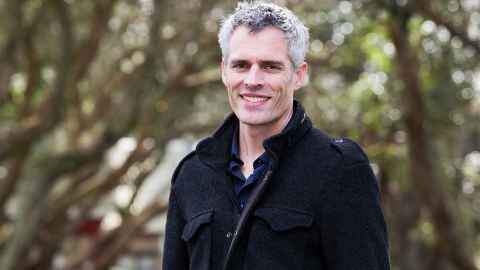Time to treat all refugees the same in Aotearoa
16 February 2022
A damaging and unfair gap exists between how we treat two refugee groups in New Zealand and it’s time to change it, according to a new report.

Co-written by Professor Jay Marlowe from the University of Auckland and Bernard Sama, chair of the Asylum Seekers Support Trust, the report argues that all refugees in New Zealand should be covered by the Refugee Resettlement Strategy (NZRRS), which is coming up for review in March for the first time in ten years.
As it stands the quota refugees, people selected offshore and resettled here under the UNHCR system, have a significantly more positive experience than asylum seekers, who apply for refugee status from within New Zealand and once accepted, become Convention refugees.
New Zealand currently accepts up to 1500 quota refugees and receives an average of 394 claims for asylum seeker status each year, with around 178 being successful annually.
There is no difference between the two groups other than how they arrived in the country, says Professor Marlowe.
“Both are assessed against the 1951 Refugee Convention, both have been found to be persecuted or have a well-founded fear of persecution, and both – eventually – have the chance to make New Zealand their new and safe home.”

He believes this country has a duty of care to ensure asylum seekers are safe from exploitation and extreme poverty while their claims are heard.
“Where specialist services exist for this group, work is only enabled by piecing funding together from donations and one-off grants to NGOs, and these organisations receive almost no support from the government.”
Inconsistent assistance and a lack of clarity about who is entitled to specific support compounds the insecurity for these people, who don’t know if a protection claim will be accepted, he says.
The report is critical of the extensive delays Convention refugees experience in receiving permanent residency, even after being accepted.
Some might also be denied a temporary visa and end up in prison while their claims are being processed, all of which has a significant impact on mental health, says Bernard Sama, a doctoral candidate in the Faculty of Education and Social Work who came to New Zealand as an asylum seeker and lived through many of the difficulties highlighted in the report.

“People in these vulnerable positions face great uncertainty and difficulty making plans for their lives until their immigrations status is fully resolved, a process that can drag on for years,” he says.
The report identifies lack of support across across six categories: housing, work rights, education, mental health, social welfare and services outside Auckland.
By contrast, quota refugees arrive to a five-week resettlement programme at Māngere in Auckland and are subsequently offered a range of help in areas like housing, education, language learning, welfare and employment.
The report sets out recommendations for a safe start and fair future, which the authors believe will also help foster a sense of belonging and improve settlement outcomes.
“A key theme is the gap between policies and implementation, and that’s because of the different rules for these groups. In our view there should be one process for how government agencies work with refugees, so no one gets lost in the system. If we start from the principles of fairness and simplicity, the other policy changes fall into place,” they say.
The ‘Safe Start. Fair Future. Refugee Equality’ report was put together by a team of eight researchers from the Asylum Seekers Support Trust and the Centre for Asia Pacific Refugee Studies at the University of Auckland, including former refugees and asylum seekers.
Media contact
Julianne Evans | Media adviser
M: 027 562 5868
E: julianne.evans@auckland.ac.nz